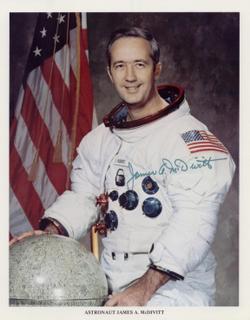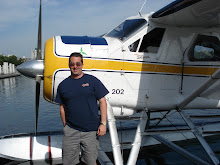James A. McDivitt 1929-

PERSONAL DATA: Born June 10, 1929, in Chicago, Illinois. His mother Mrs. James McDivitt, resides in Jackson, Michigan. Married. Four children and two step-children. Recreational interests include hunting, fishing, golf, water sports, tennis, and all outdoor activities.
EDUCATION: Graduated from Kalamazoo Central High School, Kalamazoo, Michigan; Jackson Junior College, Jackson, Michigan, received a Bachelor of Science degree in Aeronautical Engineering from the University of Michigan (graduated first in class) in 1959 and an Honorary Doctorate in Astronautical Science from the University of Michigan in 1965; Honorary Doctor of Science, Seton Hall University, 1969; Honorary Doctor of Science, Miami University (Ohio), 1970; Honorary Doctor of Laws, Eastern Michigan University, 1975.
ORGANIZATIONS: Member of the Society of Experimental Test Pilots, the American Institute of Aeronautics and Astronautics, Tau Beta Pi, and Phi Kappa Phi. Atlantic Council on Foreign Diplomacy, Advisory Council-University of Michigan.
SPECIAL HONORS: Awarded two NASA Distinguished Service Medals; NASA Exceptional Service Medal; two Air Force Distinguished Service Medals; four Distinguished Flying Crosses; five Air Medals; the Chong Moo Medal from South Korea; the USAF Air Force Systems Command Aerospace Primus Award; the Arnold Air Society JFK Trophy; the Sword of Loyola; and the Michigan Wolverine Frontiersman Award, USAF Astronaut Wings.
EXPERIENCE: McDivitt joined the Air Force in 1951 and retired with the rank of Brig. General. He flew 145 combat missions during the Korean War in F-80s and F-86s.He is a graduate of the USAF Experimental Test Pilot School and the USAF Aerospace Research Pilot course and served as an experimental test pilot at Edwards Air Force Base, California.He has logged over 5,000 flying hours.
NASA EXPERIENCE: General McDivitt was selected as an astronaut by NASA in September 1962.He was command pilot for Gemini 4, a 66-orbit 4-day mission that began on June 3, and ended June 7, 1965. Highlights of the mission included a controlled extra-vehicular activity period and a number of experiments.He was commander of Apollo 9, a 10-day earth orbital flight launched on March 3, 1969. This was the first flight of the complete set of Apollo hardware and was the first flight of the Lunar Module.He became Manager of Lunar Landing Operations in May 1969, and led a team that planned the lunar exploration program and redesigned the spacecraft to accomplish this task. In August 1969, he became Manager of the Apollo Spacecraft Program and was the program manger for Apollo 12, 13, 14, 15 and 16.He retired from the USAF and left NASA in June 1972, to take the position of Executive Vice-President, Corporate Affairs for Consumers Power Company. In March 1975, he joined Pullman, Inc. as Executive Vice-President and a Director. In October 1975 he became President of the Pullman Standard Division, The Railcar Division, and later had additional responsibility for the leasing and engineering and construction areas of the company. In January 1981 he joined Rockwell International where he is presently Senior Vice President, Government Operations and Rockwell International Corporation, Washington, D.C


<< Home